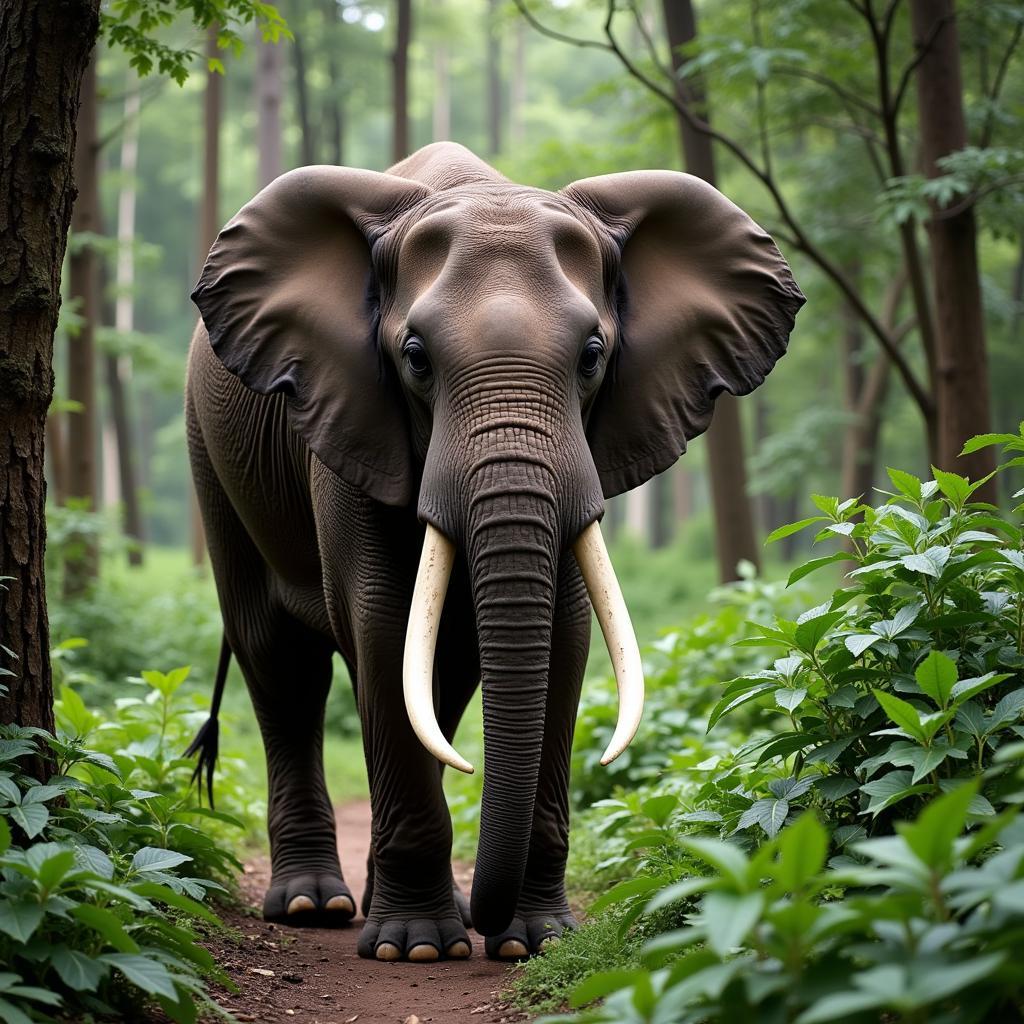African Ancestors: Unraveling the Story of Human Evolution
Africa is the cradle of humankind, the birthplace of our species, and the stage where the grand drama of human evolution unfolded. Understanding our African ancestors offers a profound glimpse into the deep roots of our shared human story and provides critical insights into what makes us uniquely human. This journey of discovery begins millions of years ago on the African continent.
The story of human evolution is complex and multifaceted, a tapestry woven from fossil discoveries, genetic analyses, and archaeological findings. It’s a narrative that continues to be rewritten as new evidence emerges, challenging old assumptions and painting a richer, more nuanced picture of our past. This narrative begins with our earliest hominin ancestors, like Ardipithecus ramidus and Australopithecus afarensis (Lucy), whose skeletal remains bear witness to their bipedal locomotion, a defining characteristic of our lineage. From there, the evolutionary path winds through various hominin species, each with its own unique adaptations and characteristics.
Tracing Our Lineage: Key Milestones in African Human Evolution
The journey of African human evolution isn’t a straight line but rather a branching bush, with multiple hominin species coexisting at various points in time. Homo habilis, known for its tool-making abilities, marks a significant leap forward in cognitive development. Then comes Homo erectus, the first hominin to migrate out of Africa, spreading our ancestors’ footprint across the globe.
The Rise of Homo sapiens: Our African Origins
The emergence of Homo sapiens in Africa around 300,000 years ago represents a pivotal moment. These early humans, possessing sophisticated cognitive abilities and complex social structures, would eventually replace all other hominin species, becoming the sole surviving members of our genus. Their innovative capacity for symbolic thought, evidenced through art, language, and ritualistic practices, set the stage for the cultural explosion that would define our species.
Our understanding of African traditions and beliefs offers a unique window into the minds of our ancestors. You can explore more about these rich cultural expressions by reading about African culture, traditions, and beliefs.
Unlocking the Secrets of the Past: Tools and Techniques
Paleoanthropologists employ various tools and techniques to piece together the puzzle of human evolution. Fossil discoveries provide invaluable anatomical evidence, revealing skeletal adaptations and brain size development. Genetic analyses offer another crucial lens, tracing the relationships between different hominin species and mapping the migrations of early humans. Archaeological findings, such as tools, artifacts, and cave paintings, illuminate the cultural and technological advancements of our ancestors, shedding light on their daily lives and cognitive capacities.
For instance, the remarkable African cave art provides a fascinating glimpse into the symbolic thinking of our early ancestors. Learn more about the captivating world of African cave art.
The Significance of African Ancestry in Understanding Human Diversity
The genetic diversity within Africa is unparalleled, reflecting the continent’s long history as the cradle of humankind. This diversity holds the key to understanding the complex interplay of genes, environment, and adaptation that shaped our species. Studying African populations provides crucial insights into the genetic basis of human traits and diseases, offering valuable information for medical research and advancements in personalized medicine.
“Understanding our African ancestry is not just about looking into the past; it’s about understanding the present and shaping the future,” notes Dr. Anika Moosa, a renowned paleoanthropologist specializing in African hominin evolution.
Conclusion: The Ongoing Journey of Discovery
The story of African ancestors and human evolution is an ongoing journey of discovery. As new evidence emerges and research techniques advance, our understanding of our origins continues to deepen. Exploring our African roots is not just a scientific endeavor but a deeply human one, connecting us to the shared heritage of our species and illuminating the path that has led us to where we are today. This journey reminds us that we are all part of a single, interconnected human family, with roots deeply embedded in the African soil.
It’s fascinating to explore the various ways African cultures have manifested throughout history, even influencing clothing traditions like the African Bambatta costume. You might also be interested in exploring the diversity of African art and learning about the most popular African names.
Do you have any questions about African ancestors and human evolution?
FAQ
- What is the oldest hominin fossil discovered in Africa?
- How did climate change influence human evolution in Africa?
- What are the key differences between Homo erectus and Homo sapiens?
- What evidence supports the “Out of Africa” theory of human migration?
- How does studying African genetics contribute to our understanding of human health?
- What are some of the ethical considerations in studying ancient human remains?
- How can I learn more about African archaeology and paleoanthropology?
Looking for more information on African culture and heritage? Check out our articles on African Bambatta costume and African Art. For a deeper dive into the roots of our shared ancestry, explore our piece on African Cave Art. And if you’re curious about naming traditions, don’t miss our article on the Most Popular African Names.
Need help tracing your African ancestry or want to explore related topics? Contact us at +255768904061, email us at kaka.mag@gmail.com, or visit us in person at Mbarali DC Mawindi, Kangaga, Tanzania. We have a 24/7 customer service team ready to assist you.

